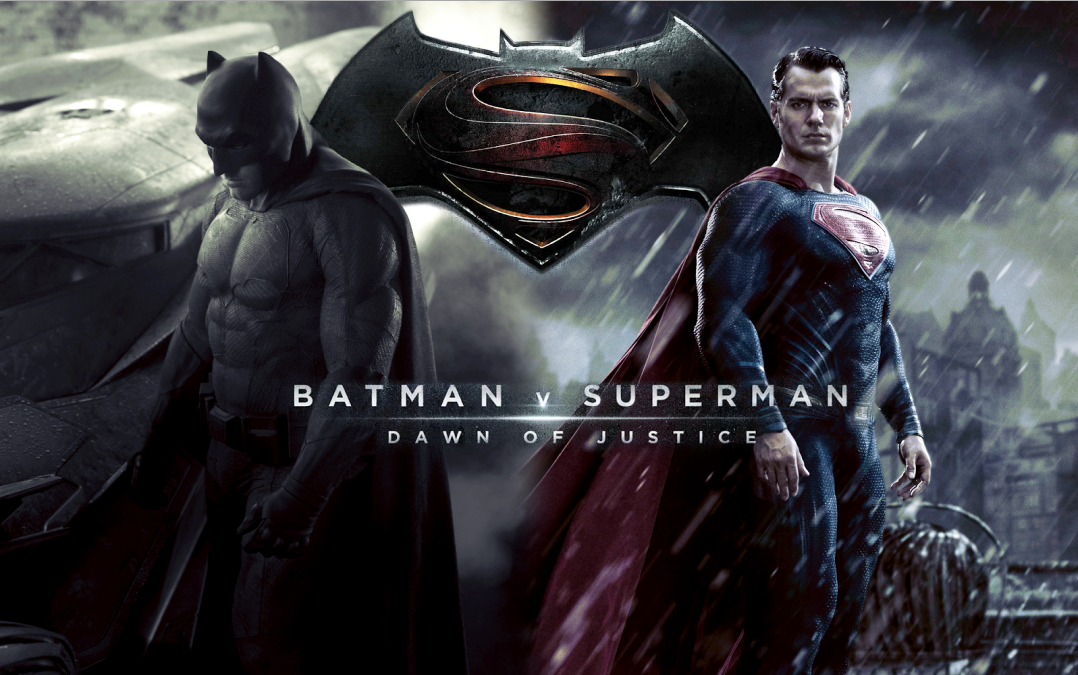By Tom Fogel-Burlan || Contributing Writer
It should be obvious that Superman is a good character.
He’s not motivated by fear, or sadness, or a past failure of any type. He’s a boy from Kansas that believes in the value of every human life, and not an anxious alien afraid of human reactions to his power.

It’s something that Zack Snyder fundamentally misunderstands. Batman v. Superman: Dawn of Justice finds its genesis not in any particular love for the characters, but in a desire to see its titular characters smack down with each other in a manner that most comic fans grow out of around the ninth grade. And though Snyder is a self-professed comic fanatic, I could never understand his directorial choices in BvS and Man of Steel, its predecessor.
But upon hearing that Snyder planned to adapt Ayn Rand’s The Fountainhead, suddenly it all clicked into place: Snyder’s Superman is an objectivist. Rand’s philosophy of Objectivism places selfishness and rational self-interest as the ultimate form of moral good in the world. Howard Roark, Fountainhead’s protagonist, refuses to compromise on his architectural vision to the point where he blows up a building that alters his original design slightly. You know, the way that life alters initial plans. Meanwhile, Man of Steel sees Superman afraid of his power, choosing to hide until his own self-interest is threatened in the form of Earth’s destruction, and nearly gives up protecting Earth in the face of heightened criticism in BvS.
And herein lies the problem: the true Superman is not selfish. In fact, he borders on socialist. Rather than use his great power to further his own gains, he believes that everybody is his equal, if not more important. Because he rather arbitrarily has such great power, it is his clear obligation to protect those who cannot protect themselves. A product of the Great Depression and conceived by two Jews immediately prior to the Holocaust, Kal-El from the comics and earlier films represents the great potential that mankind has to care for one another. This is why his archenemy, Lex Luthor, is a ruthless wealthy industrialist, constantly seeking to further his own individual wealth and gains. We may fall and hurl insults and stones, but the Man of Tomorrow shows that we can look out for each other, no matter who and no matter what.
When Superman starts to care about and potentially fear how people might react to him, it removes any motivation he has to protect somebody unconditionally, and changes his character for the worse. No longer is the last son of Krypton an ideal to strive towards, a goal where everyone can feel safe. Instead of embodying our hopes and dreams for the future, he becomes emblematic of our fears of today. And adding insult to injury, this new Kal-El offers no way to potentially overcome these fears, but instead reacts with his gut, unthinking. When General Zod shows up on Earth, he and Superman engage in a punching contest smack-dab in highly populated areas. This of course, leads to casualties and collateral, furthering distrust of Superman by the world population and culminating in one explosive scene in BvS. Snyder’s Superman decides it’s best for him to simply disappear for a while because he can never convince people that he’s a force for good. This is the most nihilistic interpretation of the character, ever, and makes for a real downer of a film.
Nihilism does not suit Superman well. It may fit his co-star, Batman, like a glove, but even that interpretation requires years of character gymnastics and mythology-altering to reach such a conclusion. Perhaps the reason it stings so much is it simply doesn’t make any sense. Superman could have just as easily embarked on a crusade to clear his name, or spoken out on the importance of justice, or simply continued to save people regardless of what others believed because he understood it as the right thing to do. But we are saddled with this character, who glowers and broods without performing much superheroics.
I want to be clear that I don’t think cultural icons should remain the same over time. If they are reflections of our society and ideals, then surely they must reflect the times they exist in. Superman needn’t remain static. He does not need to be a patriarchal oaf, who remains dismissive of women, or a brutal vigilante attacking petty thieves. But characters with long cultural resonance strike chords with audiences for good reasons. People love Superman because they know he will save the day in the end. They know that no matter what horrors are perpetuated in reality, the Man of Steel will prevail, and justice will be served.
In our troubling modern times, full of paranoia and xenophobia, perhaps an optimistic Superman could be precisely what the doctor ordered. We could have had a Superman that embodies the best of mankind’s ideals and hopes for greatness, to each other and to the Earth. But we are stuck with a figure that falls prey to the worst of human fears. That’s not Superman; that’s a travesty.